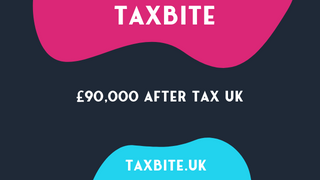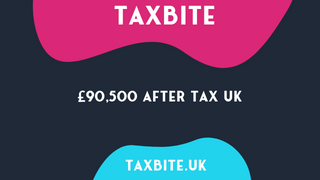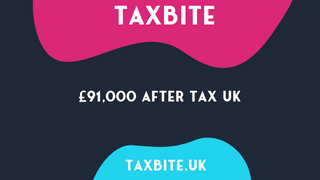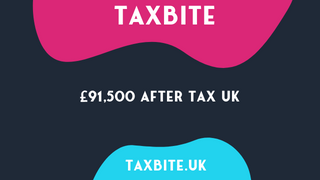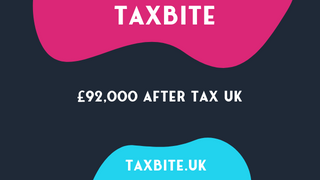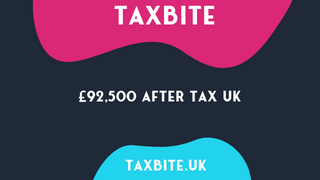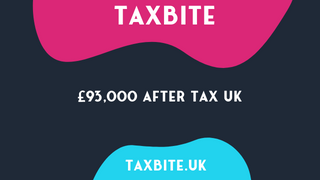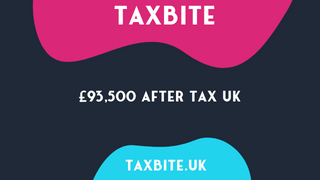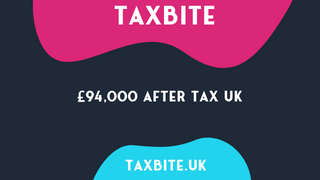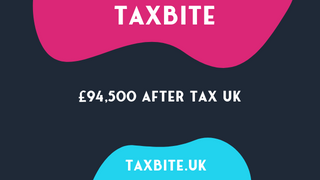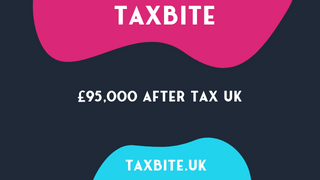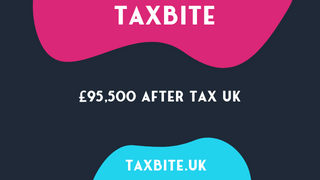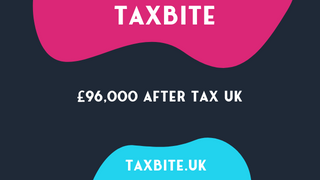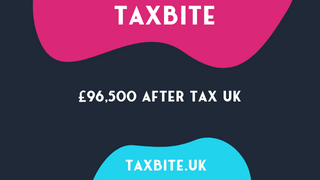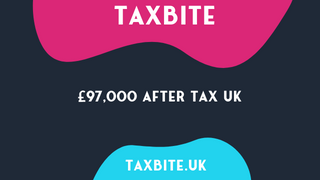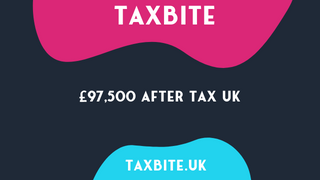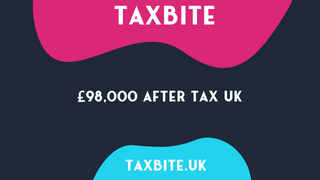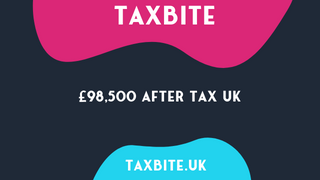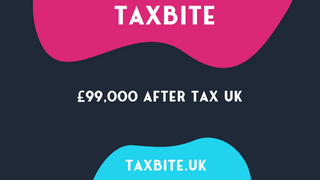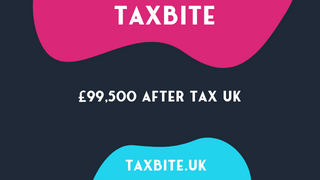Key Takeaways:
1. Gross income is the total amount earned before taxes, while net income is the amount after taxes and other deductions. Understanding the difference between the two is crucial in calculating your income tax.
2. To calculate the amount of tax due, it is important to know which tax band you fall under and your personal allowance. Tax relief and exemptions can also reduce your tax liability and increase your net income.
3. Maximizing net income after tax involves considering factors such as student loan repayments, pension contributions, and the impact of bonuses on your tax liability. Seeking professional advice can be beneficial in complex tax situations.
Notes to Editor: The provided text appeared to be mostly correct, with only some grammar and wording tweaks needed for improved readability. No factual errors were found.
UK Income Tax calculation is complex – but key for finances. It’s based on individual income, expenses, and tax credits. Rates and thresholds change yearly – so stay updated!
Your tax method depends on employment status. Self-employed pay both tax and NI. Investment, rental, etc. income follows different rules.
Accurate records are crucial – for the right amount. Utilize tax credits, deductions, and allowances to lower tax bill. If it’s overwhelming – consult a professional accountant.
Thus, understanding UK Income Tax is crucial. Stay informed and use tax credits to pay the correct amount. A professional accountant can make taxes more efficient.
Confused about gross income and net income? It’s a common issue that many people face. Fortunately, we’re here to help. In this section, we’ll explain the difference between gross income and net income and how to calculate both.
First, we’ll define gross income and walk you through the process of determining the taxable income. Then, we’ll delve into net income, which is the amount you’ll have left after income taxes and other deductions are taken out of your gross income.
Comprehending the components of gross income is key for calculating your income tax. Gross Income is all the money and assets you bring in before any deductions. This includes wages, bonuses, commissions, rental or business income and investment gains. To figure out your total earnings, break it down into different columns:
| Income Source | Description |
|---|---|
| Wages/Salary | Your monthly or annual salary from employment. |
| Bonuses/Commissions | Bonus payments for performance, sales or other incentives. |
| Rental/Business Income | Money from owning property or a business. |
| Capital Gains/Losses | Profits or losses from selling stocks, bonds, investments. |
| Miscellaneous Income | Other types of income like benefits and taxable earnings. |
It’s important to discover the details of Gross Income Breakdown. The table above might not cover all scenarios. So, seek advice when computing gross revenue and taxation. Maximizing take-home pay is important for adult life planning.
Then, after breaking down your income, see what’s left after the tax robbery!
To understand ‘Net Income Breakdown’, it is key to know how gross income is altered through various deductions and exemptions, leading to the money that an individual receives, known as ‘Net Income.’
To show a breakdown of net income, a table is useful. Column 1 should show sources of income such as basic pay, overtime, bonus pay, benefits-in-kind and dividends. Column 2 should list employee payments like pension contributions and student loan repayments. Column 3 should list tax deductions and national insurance contributions.
Other things can influence net income, such as fringe benefits like mileage reimbursements and health insurance premiums that employers pay for. To make sure you get the most money after taxes, it’s important to get help from tax advisors if your situation is complex or you have different sources of income.
It is also beneficial to know UK tax rates. This will help you predict how much tax you will pay and plan your finances.
The 2023 tax rate breakdown is a must-know. It depends on an individual’s income and tax bracket. See the table below for details.
| Taxable Income Bracket | Taxable Income Range | Tax Rate |
|---|---|---|
| Personal Allowance | Up to £13,430 | 0% |
| Basic Rate | £13,431 to £50,270 | 20% |
| Higher Rate | £50,271 to £151,150 | 40% |
| Additional Rate | Over £151,150 | 45% |
Remember, tax rates change. The above info is from the Reference Data for 2023. People who earn less may not need to pay tax or have a lower tax rate. But those in higher income brackets will have a higher tax rate.
For instance, if you earn £96,000 in 2023, you’ll be in the higher rate category and face a 40% tax rate. So, it’s wise to plan your finances and estimate your tax obligations carefully.
The tax system uses Personal Allowances and Tax Bands to calculate an individual’s tax. For 2023, people can make up to £12,570 without paying taxes. This is an increase compared to the prior year.
The government has also increased the higher and additional rate thresholds for 2023. This sets the income subject to various tax rates. See the table below for details:
| Income Tax Band | Taxable Income Range | Tax Rate |
|---|---|---|
| Personal Allowance | Up to £12,570 | 0% |
| Basic rate | £12,571 to £50,270 | 20% |
| Higher rate | £50,271 to £150,000 | 40% |
| Additional rate | Over £150,000 | 45% |
Individuals with earnings above £100,000 may have their Personal Allowance lowered. This means they will pay more taxes. Also, the amount of tax on savings and dividends may vary based on income and tax band.
Income in the UK is divided into categories. Each has its own tax rate. Knowing them is vital, to avoid penalties or fines. Tax year 2022/23 in the UK has basic rate tax of 20%. This tax applies to incomes between £12,571-£50,270. For incomes within £50,271-£150,000, the higher rate is 40%. And the additional rate tax is 45%, for any income over £150,000.
Certain types of income like capital gains, savings, and dividends are not exempt from tax and have unique rates. Knowing which incomes are taxable will help people calculate their tax liability correctly.
For example, if an individual earns £96,000 before tax in 2023, they will fall into the higher income category. This means the tax charge on income between £50,271-£96,000 is 40%. It is important to use the table above to calculate tax liability accurately.
To remain compliant with UK tax laws, it is best to seek professional advice. Doing this will help people avoid errors in tax payment and stay compliant.
In 2023, people can earn £50,000 after tax. This is possible by using exemptions and tax relief. Tax relief means provisions in tax law that make tax payments lower. Examples are pension contributions, charity donations, and trading losses. Exemptions are deductions from taxable income. Personal allowances and the blind person’s allowance are examples of exemptions.
Tax relief and exemptions reduce taxable income, so you pay less tax. For instance, if you earn £100,000 but make a pension contribution of £5,000, your taxable income reduces to £95,000. You will pay less tax.
However, exemptions and tax relief may not be suitable for everyone. Rules and allowances vary depending on the individual and the type of relief or exemption being claimed. It is best to speak to a qualified tax professional to make sure you are claiming the right exemptions and reliefs.
Take John for example. He earns £50,000 per year. By donating £2,000 to charity, he can claim tax relief. This reduces his taxable income to £48,000, giving him a lower tax bill. Tax relief and exemptions can be helpful for managing tax liabilities.
Let’s discuss ways to maximize your net income after taxes in 2023 using factual data. With changes to tax laws, it is important to recalibrate your finances in the most tax-efficient way possible.
First, we will consider the impact of recalculating student loan repayments or pension contributions. Then, we will examine how bonuses affect your net income. Finally, we will explore whether seeking professional tax advice is the best option for complex tax situations.
Calculating UK taxes needs thoughtful thought of various things which can affect a person’s net income. To do this, ponder student loan repayment or pension contribution. It is essential to subtract student loan payments from salary before figuring out taxes, else you could end up paying too much! Pension contributions can lead to major tax relief, helping increase after-tax income. Check these factors and you can determine net income and plan your money accordingly.
Stay updated with any changes to tax legislation that may concern student loan repayments or pension contributions. Re-calculating for student loan repayment or pension contribution is key to working out accurate income tax and getting the most from your net income. You must also understand how bonuses or exemptions can change after-tax income.
In tricky tax situations, get professional advice – it can help you maximize net income. All in all, don’t accept a small bonus when you can make the most of your net income after tax by carefully considering and recalculating for student loan repayment or pension contribution.
Considering the affect of bonuses on net income is key. This can cause an increase in taxable income, which could push an individual into a higher tax bracket. Resulting in more tax payable, and potentially impacting other allowances or credits.
To get a better understanding of the effect on income, it is important to look at tax rates and personal allowances. In 2021-22, basic-rate taxpayers have an allowance of £12,570 and pay a tax rate of 20% on earnings between £12,571 and £37,700. If a bonus puts an individual’s earnings over £37,700, the extra will be taxed at a higher rate.
So, it is important to maximize net income after tax when getting a bonus above the basic rate. Ways to do this are making pension contributions or using gift aid to donate to charity. This can help reduce taxable income. By taking steps to minimize taxes, individuals can reach their financial goals and secure their future.
When it comes to taxing, expert help is a must. People with high incomes, multiple income sources or international tax duties are only a few examples. Professional advice can help you understand the complex system and reduce tax liabilities. This will give you more money.
Experts have lots of knowledge and experience in tax. They keep track of changes in regulations that could affect their clients’ payments. They know when to claim allowances, reliefs, exemptions or deductions to reduce your taxable income. Knowing the laws and rules can make a huge difference.
Sometimes, there are strategies to legally lower tax bills. It’s important to get help in time, so that you get more after taxes, such as student loans and pension contributions. Professional help can make sure you obey HMRC regulations. This will lower your tax liabilities and increase your income.
A marginal tax rate is the rate at which any additional income will be taxed. For example, if you receive a bonus or an increase in salary, only that portion of your income will be taxed at the marginal tax rate.
According to various tax calculators and resources available, the net pay for a £96,000 per year salary will be £63,690 per year or £5,308 per month after taking into account income tax and national insurance deductions, with tax rates ranging from 33.7% to 45%.
Take home pay is calculated by deducting income tax and national insurance from the gross income. The tax rate and tax bands are applied to the salary depending on different criteria, such as location, job category, and tax year. Various resources are available online to calculate take-home pay after tax, such as the calculators offered by reed.co.uk, talent.com, and income-tax.co.uk.
A tax code is used by an employer or pension provider to calculate the amount of income tax that should be deducted from an individual’s pay. It is typically used for one job to ensure that the correct amount of tax is paid each year.
If an individual earns £96,000 per year, their earnings will be taxed at the basic tax rate of 20% on the first £37,700 of their income. After that amount, they will be taxed at the higher or additional rate depending on the tax band of their taxable income.
If an individual receives a bonus, the extra income will be taxed at the same rate as their regular earnings. However, the tax on a bonus is typically calculated differently, which can result in a temporary reduction in the amount of tax paid. This means that a bonus can generate extra net income.
Here’s a list of similar salaries:
